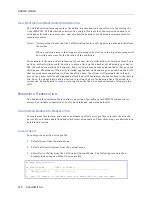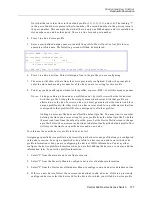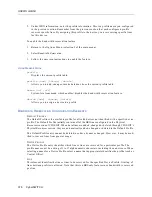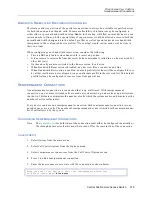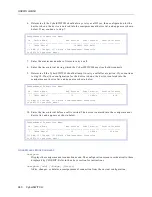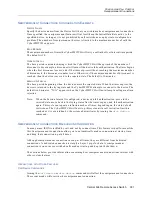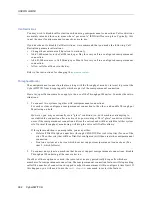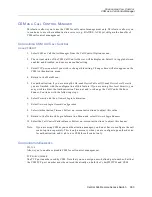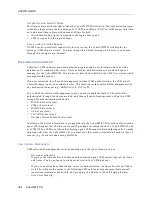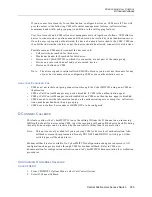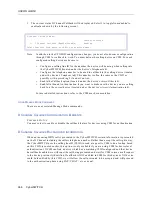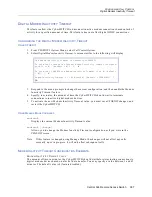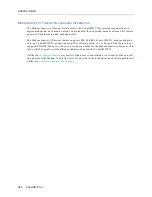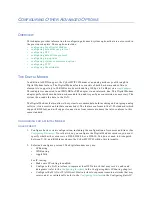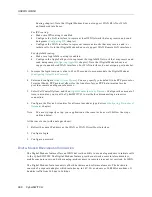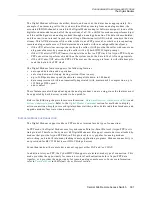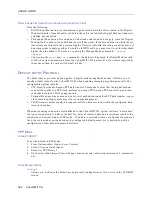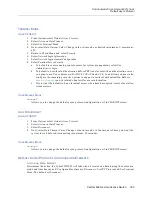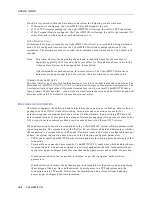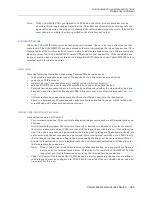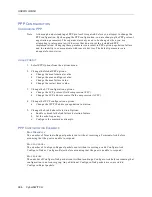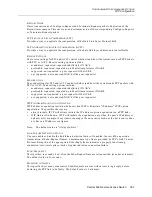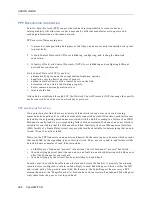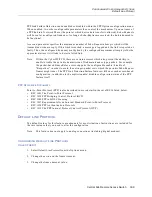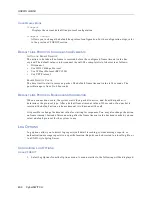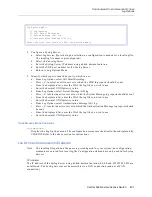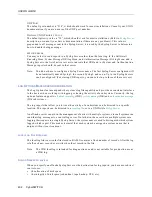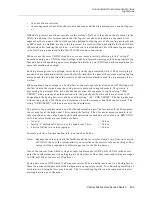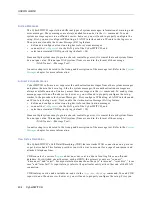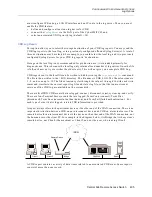
USER’S GUIDE
390 CyberSWITCH
Routing chapter). Note that Digital Modem does not support WAN RLAN or WAN
unNumbered interfaces.
For IPX routing:
a.
Make sure IPX routing is enabled.
b.
Configure the LAN interface to represent local IPX Network that may receive and send
datagrams (
Configuring IPX
chapter).
c.
Configure the WAN interface to represent remote networks that may receive and/or
initiate calls. Note that Digital Modem does not support WAN Remote LAN interfaces.
For AppleTalk routing:
a.
Make sure AppleTalk routing is enabled.
b.
Configure the AppleTalk ports to represent the AppleTalk Network that may receive and
send datagrams (
Configuring AppleTalk
chapter). Note that Digital Modem does not
support unnumbered WAN interfaces. For WAN interfaces, do not assign a port number.
3.
Increase the login time-out value to 45 or 50 seconds to accommodate the Digital Modem
(
Configuring Default Line Protocol
).
4.
Select and configure
Default Async Protocol
. You may specify your default to be PPP protocol or
Terminal Mode. PPP protocol allows for the transfer of async PPP data; terminal mode
provides remote analog console access.
5.
Select Call Control Options, and then
Digital Modem Inactivity Timeout
. Configure the amount of
time, in minutes, you want the CyberSWITCH to wait before disconnecting an inactive
connection.
6.
Configure the Device List entries for all remote modem type devices (
Configuring Device Level
Databases
chapter).
Note:
You must properly set up your application at the remote site as well. Follow the steps
outlined below:
At the remote site (with analog modem):
1.
Reflect the same IP address as the WAN or WAN Direct Host Interface.
2.
Configure login.
3.
Configure password.
D
IGITAL
M
ODEM
B
ACKGROUND
I
NFORMATION
The Digital Modem feature offers an ISDN device the ability to use analog modems to initiate calls
to the CyberSWITCH. The Digital Modem feature provides network access to telecommuters,
mobile computer users, and other analog-modem users in remote areas not yet serviced by ISDN.
The Digital Modem feature consists of both hardware and software elements. The hardware
consists of a separate adapter which includes up to 24 V.34+ modems or 30 K56Flex modems. It
handles traffic from 300 bps to 56 Kbps.

